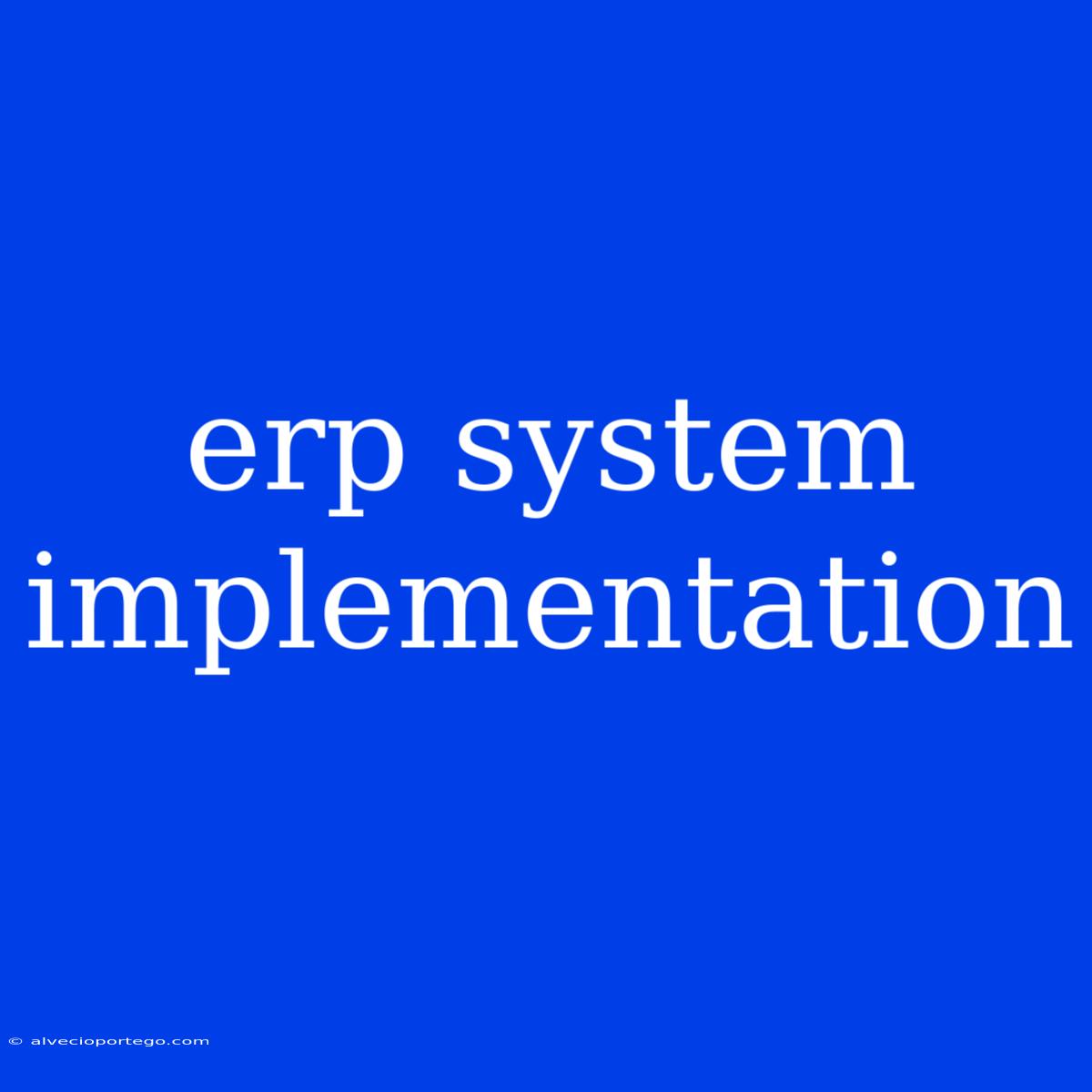ERP System Implementation: A Guide to Successful Adoption
Enterprise Resource Planning (ERP) systems are designed to integrate various business processes within an organization. They provide a centralized platform for managing crucial aspects like finance, human resources, supply chain, customer relationship management, and more. Implementing an ERP system can be a complex undertaking, requiring careful planning, execution, and management.
Why Implement an ERP System?
There are numerous compelling reasons for organizations to consider implementing an ERP system:
- Enhanced Efficiency: Automation of key processes streamlines operations and eliminates redundancies, boosting efficiency and productivity.
- Improved Visibility and Control: Centralized data provides real-time insights into various business functions, enabling better decision-making and control over operations.
- Streamlined Communication: Shared data facilitates better communication and collaboration across departments, reducing miscommunication and improving teamwork.
- Reduced Costs: Streamlined processes and improved resource utilization contribute to significant cost savings.
- Compliance and Regulatory Adherence: ERP systems offer robust tools for managing compliance requirements and ensuring regulatory adherence.
- Improved Customer Satisfaction: Better inventory management, faster order processing, and enhanced customer service lead to greater customer satisfaction.
The ERP System Implementation Process:
A successful ERP implementation typically follows these stages:
1. Planning and Scoping:
- Define Business Requirements: Clearly identify the organization's goals and objectives for the ERP system.
- Choose the Right ERP System: Evaluate various ERP solutions based on the organization's size, industry, budget, and specific needs.
- Assemble a Strong Implementation Team: Recruit dedicated personnel with the necessary expertise and experience to manage the implementation.
- Develop a Detailed Implementation Plan: Create a comprehensive roadmap outlining the project timeline, milestones, resources, and responsibilities.
2. Configuration and Customization:
- Configure the ERP System: Set up the core modules and functionality based on the organization's requirements.
- Customize the System: Tailor the ERP system to meet specific business processes and workflows.
- Integrate with Existing Systems: Connect the ERP system with legacy systems and other software applications.
- Develop and Test Customizations: Rigorously test customizations and integrations to ensure seamless integration.
3. Data Migration and Training:
- Prepare and Migrate Data: Transfer data from legacy systems to the ERP database.
- Develop Training Programs: Train users on the new ERP system, its features, and functionalities.
- Provide Ongoing Support: Offer continuous support to users to address questions and provide guidance.
4. Testing and Go-Live:
- Execute System Testing: Conduct thorough testing to ensure the ERP system meets all requirements.
- Perform Pilot Testing: Implement the ERP system in a limited scope to identify and resolve any remaining issues.
- Plan for Go-Live: Establish a clear go-live strategy and schedule for transitioning to the new system.
5. Post-Implementation Support:
- Provide Ongoing Support: Offer ongoing technical assistance to users.
- Monitor Performance: Track system performance and identify areas for improvement.
- Optimize and Enhance: Continuously assess and optimize the ERP system to maximize its effectiveness.
Key Considerations for Success:
- Executive Sponsorship: Secure strong support from top management for the ERP project.
- User Engagement: Involve key users in the planning and implementation process to ensure their buy-in.
- Clear Communication: Maintain open and transparent communication throughout the project.
- Change Management: Address resistance to change and ensure users are comfortable with the new system.
- Experienced Implementation Partner: Engage a reputable and experienced implementation partner to guide the process.
Conclusion:
Implementing an ERP system is a significant investment that can yield substantial benefits for organizations. By meticulously planning, executing, and managing the implementation process, businesses can ensure a successful transition to a unified, efficient, and data-driven operating environment.

